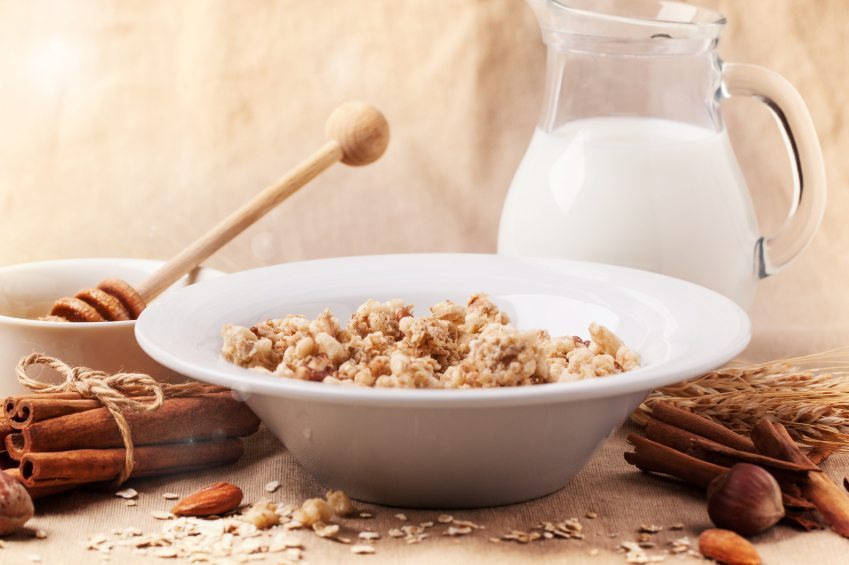
Growing up, the only food I ever thought of putting cinnamon on was applesauce. I sprinkled a dusting onto my Motts and – probably like many other people – didn’t think much more of the spice. Cinnamon can be found in many meals—not just baked goods—and research suggests that its presence may be beneficial to our bodies. Today, researchers are wondering if the spice could help our body digest meals more healthily than if the spice was absent. So, is it worth it to add an extra shake of cinnamon to breakfast or dinner? Let’s find out what researchers think.
SEE ALSO We’re Going There: Can Cinnamon Alleviate UTI Symptoms?
According to the medical informational website Medical News Today, researchers at Penn State found that “eating a diet rich in spices, like turmeric and cinnamon, reduces the body’s negative responses to eating high-fat meals.” The 2011 study published in the Journal of Nutrition “included six overweight but otherwise healthy men aged between 30 to 65 years who were given meals prepared by [the] research team on two separate days,” Medical News Today states. The purpose was to find what results, if any, eating meals with savory spices would have on the digestion of foods when compared to meals eaten without any spices added. In the study, participants were fed “chicken curry, Italian herb bread, and a cinnamon biscuit with two tablespoons of culinary spices added to each serving;” however, the control group ate the same meal but without any spices, Medical News Today explains. Even though the two groups ate essentially the same meal, interestingly, it was found that those who consumed the meal with the spices produced a more positive outcome. Medical News Today explains that the group who ate “the meal containing the blend of antioxidant spices showed a 13 percent rise in antioxidant activity in the blood and had a 20 percent lower insulin response.” This is positive in that an insulin spike typically indicates the body going into “fat storage” mode, by reducing this, the body is less likely to hang on to calories, fat and pounds.
SEE ALSO Can Cinnamon Help Lower Blood Pressure?
From the study, we know that cinnamon helps our body process foods better than meals without spices, but why exactly does this happen? A health and wellness website, Live Strong, explains that “The active compound in cinnamon, which also gives it its flavor, is called cinnamaldehyde.” In a 2012 study published in the Journal of Nutritional Science and Vitaminology, researchers studied the effects cinnamadehyde had on visceral fats [body fat near the stomach] in mice. Live Strong states that after the period of a month, “the mice taking cinnamaldehyde had lost visceral fat, whereas the control group didn’t [and] concluded that the cinnamaldehyde stimulated the metabolism of the fatty visceral tissue, suggesting that cinnamon could be useful in reducing belly fat.” While research is still being done to determine the effects on a human’s visceral fat, it is suggested that cinnamon can help treat “type 2 diabetes and high cholesterol,” Live Strong explains.
SEE ALSO Fact Or Fiction: Can Cinnamon Really Remove Blackheads?
Verdict: Fact. Adding spices like cinnamon to meals helps lessen the effects that fatty foods have on our bodies. The topic is still undergoing further research, but many studies seem to support cinnamon’s role in helping us keep healthy. Try out some new recipes that contain cinnamon as a way to stay healthy this summer. Some easy ways to include cinnamon in your diet is to sprinkle some on your oatmeal, blend it into your smoothies or even lightly dusting some apples with it! Perfect and simple.
For more Food features, check out our articles here.
What are your thoughts on the cinnamon health benefits?









![Daily Bite [Make]: Philly Cheesesteak Stuffed Bell Peppers](https://dashofwellness.com/wp-content/uploads/2013/01/Philly-Cheesesteak-Stuffed-Pepper-Daily-Bite-1-100x70.png)
